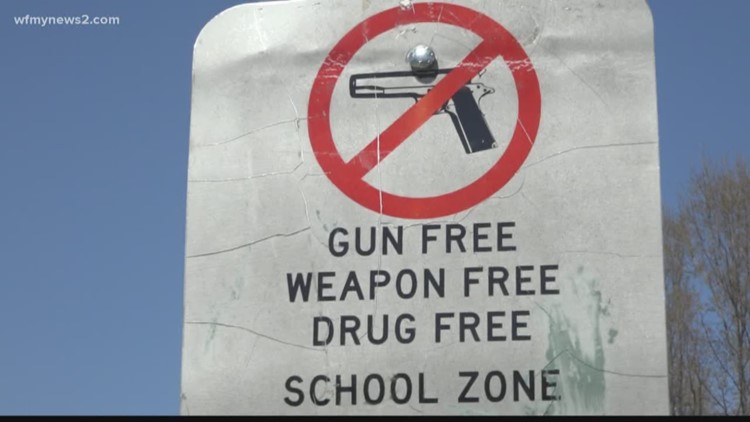RALEIGH, N.C. — The North Carolina Governor's Crime Commission Special Committee on School Shootings presented a report to Governor Roy Cooper today.
The committee said North Carolina schools needs to ramp up training for law enforcement and educators, improve physical security at schools, gather better information about potential threats, and invest in more mental health support for schools.
Prompted by the violent shooting at Marjory Stoneman Douglas High School in Parkland, Florida, on Feb. 14, 2018, as well as other school shootings across the United States, Department of Public Safety Secretary Erik A. Hooks requested that the Governor's Crime Commission establish the Special Committee on School Shootings. Announced on April 19, 2018, the Special Committee includes sheriffs, juvenile justice experts, court officials, educators and other experts and is chaired by Gaston County Sheriff Alan Cloninger and former Wake County Sheriff Donnie Harrison.
The group held five meetings and hosted well-attended public forums in Greenville and Greensboro in 2018. These public forums were designed to ensure that community voices and ideas were heard and incorporated into the Special Committee's report.
The Special Committee made 22 recommendations in the following areas: Training; Physical Security; Threat Intelligence/Assessment; School - Law Enforcement Partnerships; and possible Statutory Changes. The members included an additional 11 recommendations outside of these categories.
Among the recommendations in the report:
- More School Resource Officers (SROs) in schools.
- Enhanced mental health training for SROs.
- Train SROs to teach schools how to respond to an active shooter crisis.
- Require vulnerability assessments of schools to identify ways to make school buildings safer, including placement and use of security cameras and alarm systems.
- Require local schools, law enforcement and emergency responders to work together on active shooter drills.
- Support multi-disciplinary threat assessment teams (including SROs or law enforcement) to meet regularly, share information and discuss possible threats to school safety.
- A statewide tip line or application for reporting threats to schools.
- Improve data collected on incidents of school violence.
- Fund the Governor's budget requests for more mental health personnel and training for schools.
- Train law enforcement and educators to communicate more effectively about school threats.
- Develop Gun Violence Protection Orders to provide a legal process to temporarily remove guns from a dangerous individual.
"Keeping our schools safe requires law enforcement, educators and communities working together toward a common goal and applying common sense," said Alan Cloninger, sheriff of Chatham County 2004-present.
"One major focus for us is how to provide all levels of law enforcement with the training and tools necessary to prevent these tragedies. Another key focus is making sure law enforcement and educators communicate more effectively about school threats so they can be addressed quickly and comprehensively," said Donnie Harrison, sheriff of Wake County 2002-2018.
Read the Special Committee on School Shootings Report HERE.



